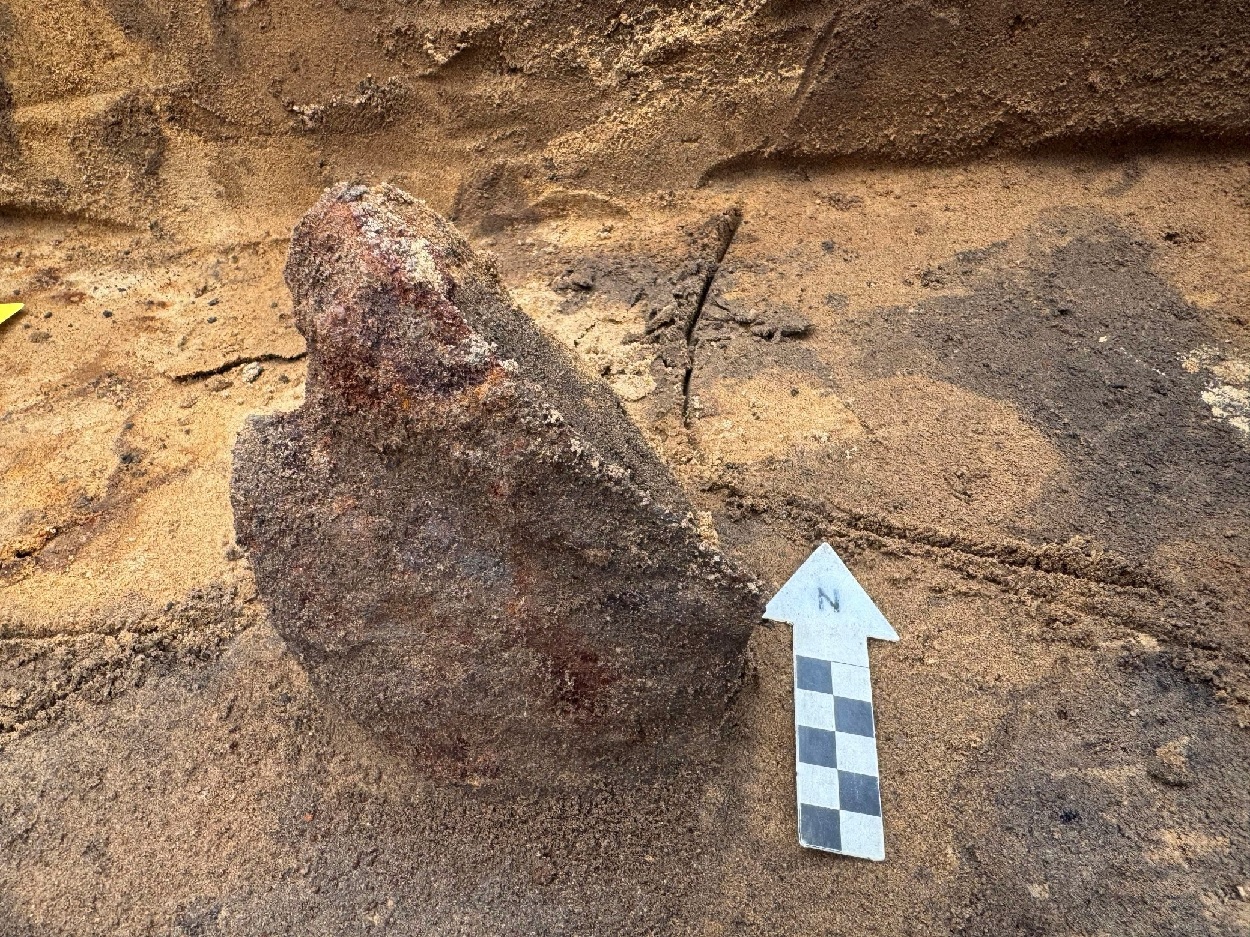Excavations at Løsning Søndermark in Denmark have discovered a Roman helmet alongside a substantial cache of weapons.
The weapons cache was first announced in November 2024 following archaeological works in preparation for the expansion of a motorway.
Archaeologists suggest that the cache was a ritual offering at a chieftain’s burial, dated to between 1,500 and 2,000 years ago during the Iron Age.
Close to 200 weapons and various funerary objects were uncovered within two structures—one apparently dismantled as part of a ritual, while the other was constructed as an integral element of the ongoing burial ceremony.
Weapon finds include lances, swords, spears, and the rare discovery of chainmail. The most notable funerary objects unearthed are two highly distinctive bronze neck rings known as oath rings.

In a recent press release, the Vejle Museum announced that archaeologists have also uncovered two small iron plates, which an X-ray analysis has identified as fragments of a 4th-century AD Roman crest helmet.
The cheek guard is adorned along its outer edge with reverse S-shaped squiggles. However, the crown of the helmet remains missing.
Archaeologists suggest that the helmet was deliberately broken into pieces, likely to be distributed among warriors as a token after a victorious battle.
“Roman helmet finds from the Iron Age are exceptionally rare in southern Scandinavia, and there are no direct parallels to this discovery. The few similar finds come from Thorsbjerg Moor in Schleswig or from southern Sweden and Gotland—none from Denmark,” said the Vejle Museum.
From February 8th, 2025, various objects (including the plates from the Roman helmet) will be on display at the Cultural Museum in Vejle.
Header Image Credit : Vejle Museum
Sources : Vejle Museum





